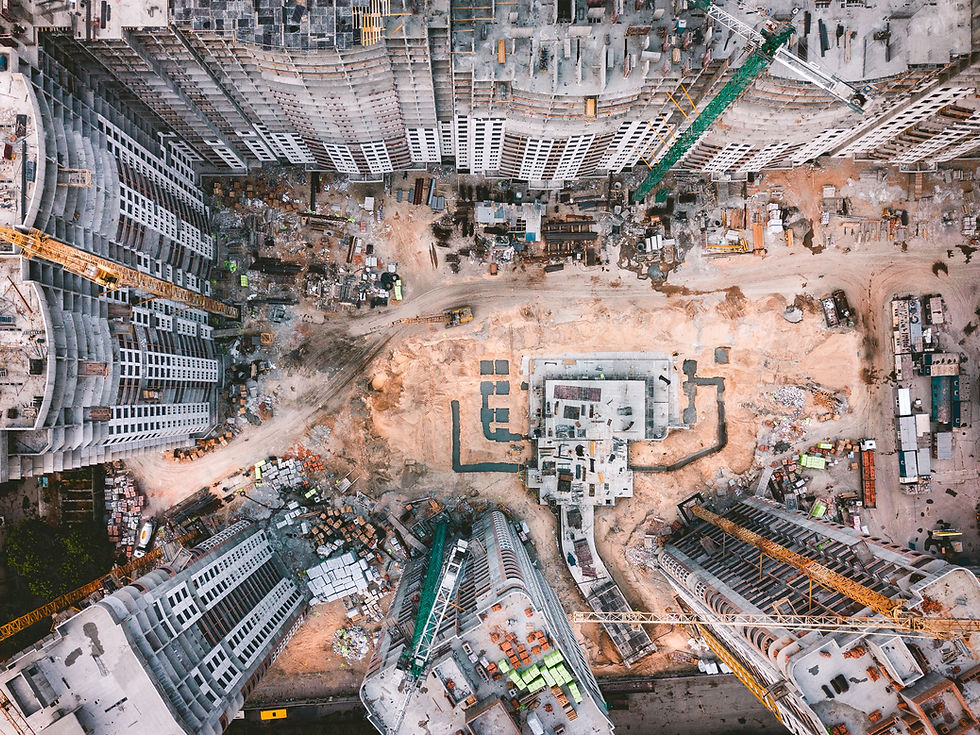5 Tips for Successful Commercial Renovations in Florida
- Coastal Reconstruction Group

- Jun 13, 2023
- 4 min read

Florida is a bustling state with a vibrant commercial sector. From retail stores to office spaces, commercial renovations play a crucial role in maintaining and enhancing these establishments. However, undertaking a successful commercial renovation project requires careful planning, attention to detail, and a thorough understanding of the unique challenges and requirements of the Florida market. In this article, we will discuss five essential tips that can help ensure the success of commercial renovations in Florida.
Understand Florida Building Codes and Regulations
Before embarking on any commercial renovation project in Florida, it is vital to have a solid understanding of the state's building codes and regulations. Each state has its own set of construction rules, and Florida is no exception. Familiarize yourself with the specific requirements related to permits, zoning, safety standards, and accessibility guidelines. By adhering to these regulations from the start, you can avoid costly delays, fines, and potential legal issues later in the project.
Hire an Experienced Contractor
Choosing the right contractor is crucial for the success of your commercial renovation project. Look for a contractor with a proven track record in completing similar projects in Florida. Experience in navigating the local building codes, working with subcontractors, and managing project timelines is essential. Ask for references, review their portfolio, and check online reviews to ensure their reliability and professionalism. Remember, hiring an experienced contractor can save you time, money, and headaches down the line.
Plan for Florida's Climate
Florida's climate presents unique challenges when it comes to commercial renovations. The state is prone to hurricanes, heavy rain, and high humidity levels. Incorporating weather-resistant materials, reinforcing structures, and implementing proper drainage systems are crucial considerations for ensuring the longevity and durability of your renovated commercial space. Working closely with architects and engineers who are familiar with Florida's climate can help you make informed decisions and avoid potential weather-related issues.
Consider Energy Efficiency
Incorporating energy-efficient features into your commercial renovation not only benefits the environment but also helps you save on operational costs in the long run. Florida's warm climate often leads to high energy consumption for cooling purposes. By using energy-efficient windows, insulation, HVAC systems, and lighting fixtures, you can reduce your carbon footprint and lower utility bills. Additionally, implementing renewable energy sources such as solar panels can further enhance the sustainability of your commercial space.
Communicate and Collaborate Effectively
Successful commercial renovations require effective communication and collaboration between all stakeholders involved. Regular and transparent communication with the contractor, architects, designers, and subcontractors is essential for keeping the project on track and addressing any concerns or issues promptly. Embrace technology tools such as project management software, collaborative platforms, and virtual meetings to facilitate smooth communication, streamline workflows, and ensure everyone is on the same page throughout the renovation process.
Conclusion
Embarking on a commercial renovation project in Florida requires careful planning, attention to detail, and effective execution. By understanding Florida's building codes, hiring an experienced contractor, considering the climate, embracing energy efficiency, and fostering effective communication, you can increase the chances of a successful renovation. Remember to adapt these tips to your specific project and consult with professionals to ensure compliance with local regulations. With the right approach, your commercial renovation project in Florida can transform your space into a thriving, functional, and visually appealing establishment.
Frequently Asked Questions (FAQs)
How long does a commercial renovation project in Florida typically take?
A commercial renovation project's duration depends on various factors, including the size of the space, the scope of work, and the complexity of the project. On average, a commercial renovation project in Florida can take anywhere from a few weeks to several months.
Can I continue operating my business during the renovation?
In some cases, it may be possible to continue operating your business during the renovation with minimal disruptions. However, this depends on the nature of the work and the availability of alternative spaces. Consult with your contractor to develop a phased plan that allows for ongoing operations while ensuring safety and minimal inconvenience to customers and employees.
How can I estimate the budget for a commercial renovation project?
Estimating the budget for a commercial renovation project involves considering various factors such as the size of the space, desired renovations, material costs, labor expenses, and permits. Consulting with experienced contractors and obtaining multiple quotes can help you develop a realistic budget for your project.
Are there any tax incentives for energy-efficient commercial renovations in Florida?
Yes, there are tax incentives and rebates available for energy-efficient renovations in Florida. The state and federal governments, as well as local utility companies, often provide financial incentives to encourage businesses to implement sustainable and energy-saving practices. Research and consult with professionals to explore the available incentives and maximize your savings.
What should I do if I encounter unexpected issues during the renovation process?
Despite careful planning, unforeseen issues may arise during a commercial renovation project. It is essential to maintain open lines of communication with your contractor and promptly address any concerns that arise. Collaborate with your contractor to develop contingency plans and consider setting aside a buffer in your budget and timeline to accommodate unexpected challenges.









Comments